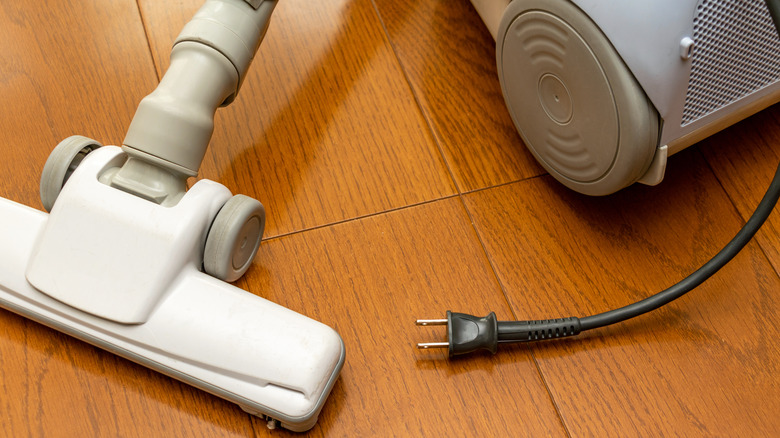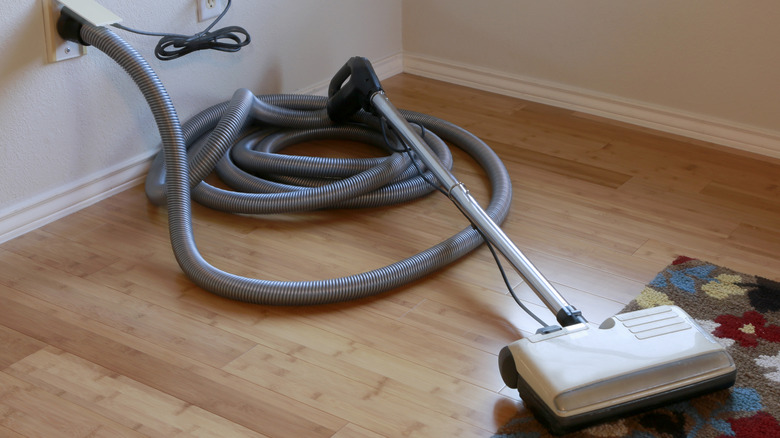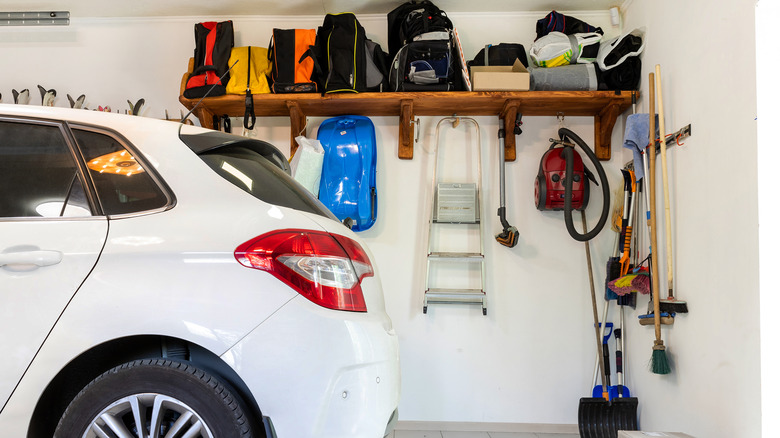Avoid This Mistake When Storing Your Vacuum Cleaner
Your toddler dumps her bowl of Cheerios on the kitchen floor as your puppy comes bounding down the hallway, tracking dirt and debris from the garden. Get ready for an epic vacuum workout. Then again, in busy households, every day may seem like an extended cardio session for your electric floor cleaner. Consequently, protecting your vacuum from sustaining damage on the rare occasions it's not in use should be a top priority. To safeguard your precious cleaning machine while on break, avoid cramming it into tight spaces ripe with clutter hazards.
No question, vacuums have become an essential household appliance cleaning everything from floors and lampshades to mattresses and blinds. However, while a lot of fuss is made about selection and the mistakes everyone makes when buying vacuum cleaners, far less attention is given to preserving these indispensable suction saviors once they become a part of your modern family. A vital component of maintaining a vacuum to extend its longevity is storage. In other words, where you place your vacuum cleaner when you aren't using it matters — especially if you want it to be in tip-top condition the next time you need it to erase the mess your kids made giving your sheepdog a DIY haircut.
How to safely store your vacuum cleaner
Vacuuming may not be your favorite household chore, but it's made exponentially easier when your machine works the way it should. To ensure this happens every time, storing your favorite dirt sucker upper in an area with adequate breathing space is critical. Avoid stowing your vacuum in cluttered closets or spandrels (the triangular space under the stairs in your home) that lack proper ventilation. Vacuum cleaners — even those that don't get used daily- need room to be freely accessed without incident. Jamming a vacuum cleaner into an already tight space can increase the risk of damage. Dents and scratches to the machine's body and nicks to the power cord can occur when trying to wedge a vacuum cleaner into overstuffed storage areas. Additionally, trying to squeeze a vacuum into a full closet or cabinet could trigger an avalanche of items falling on it. This could break exposed attachments, including plastic extension wands and upholstery tools.
Ideally, vacuums should be stored in large utility closets or in the corner of a laundry room where it won't be a tripping hazard. Convenience and accessibility are critical, particularly if your vacuum gets put through the paces daily. If you store your high-tech floor cleaner in a spot where it is a hassle to get at it, the likelihood of you simply parking it in the same place you last used it greatly increases.
Other vacuum storage mistakes to avoid
Leaving your vacuum in random spots throughout your house may be convenient, but it can quickly become an eyesore and eat up premium floor space. If large storage areas are non-existent in your home, consider hanging your vacuum on the back of a door or a wall away from high-traffic areas via a wall-mounted bracket or extra-strength utility hooks. However, resist the urge to do so in an attic or garage, as these spaces are prone to extreme temperature fluctuations. Vacuum cleaners contain vulnerable mechanical components that can be easily damaged if exposed to excessive heat or cold. Motor damage, rust, and corrosion can occur if you store your vacuum in exceptionally damp or moist places, like basements and bathrooms. Instead, opt for cool, dry storage areas that don't experience high humidity or direct sunlight, as prolonged exposure to either can negatively affect your vacuum's performance.
Once you identify a climate-controlled storage space for your vacuum, clean your machine regularly, even if you only plan to store it for short intervals. Depending on the type of vacuum, empty the dust canister or replace the vacuum bag and clean the filters and floor brush head before putting it away. Finally, avoid storing your vacuum with a knotted or tangled power cord. Rather, to prevent electrical issues, loosely coil the cord and keep it away from objects that may cause kinks or frays.


